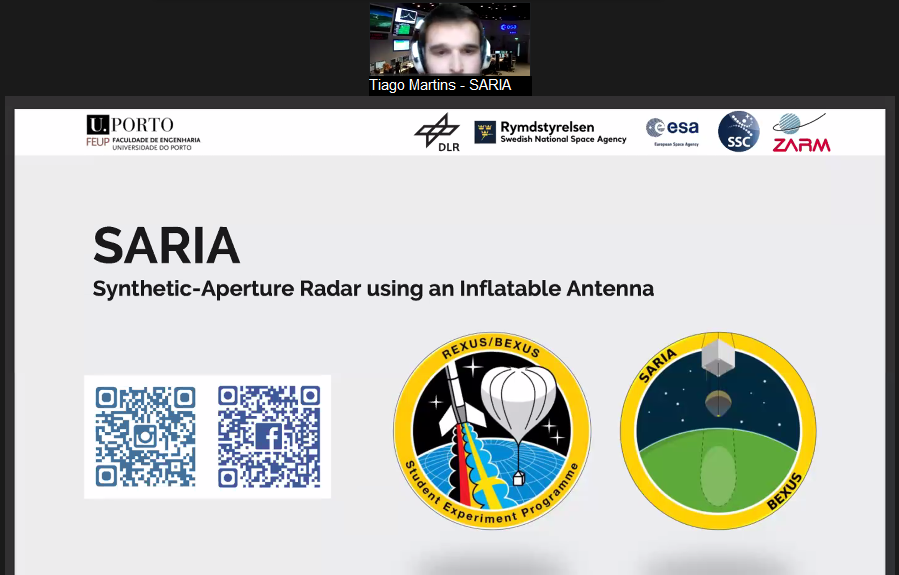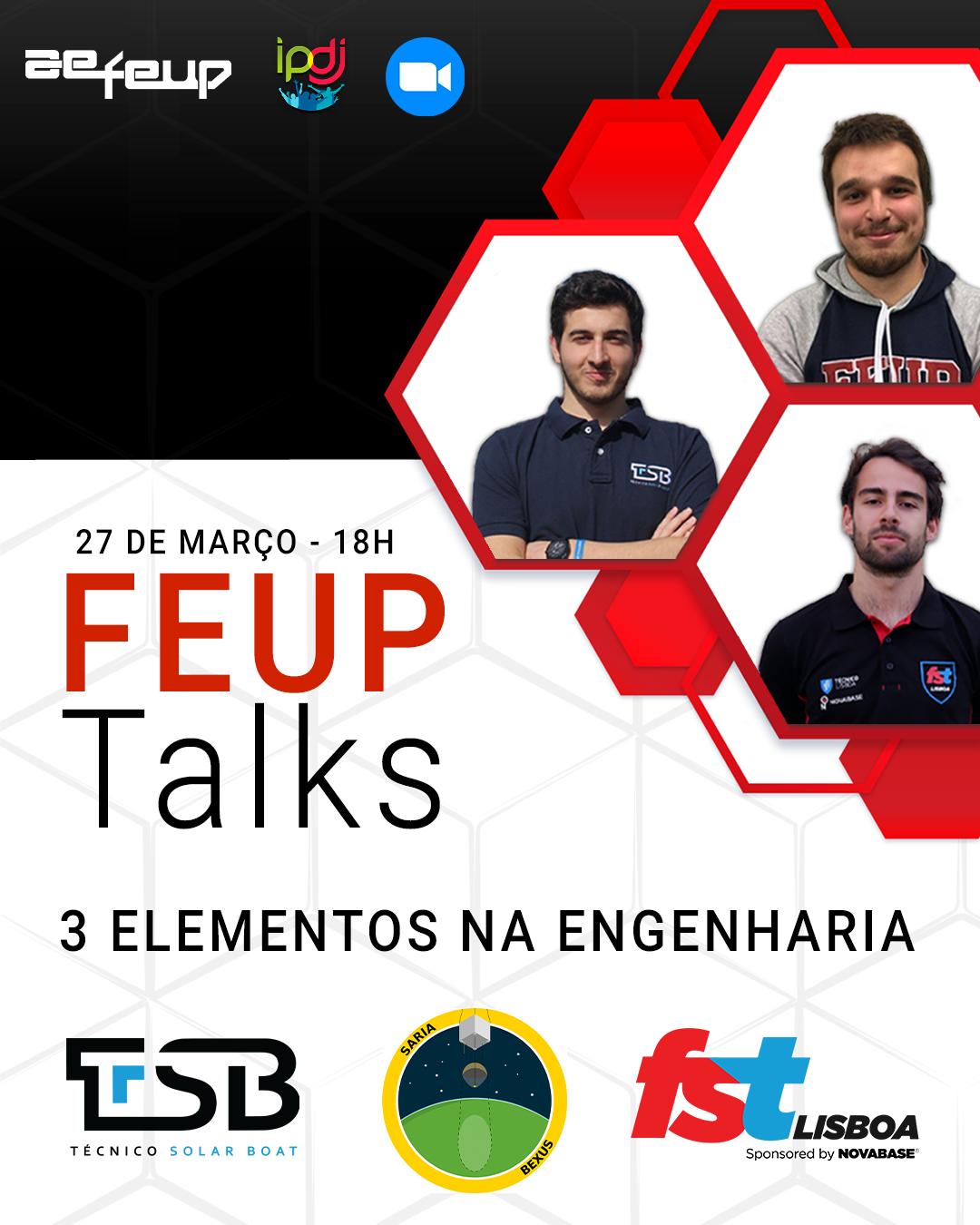On 27/03/2021, we participated on a virtual round table talk organized by the student union of our faculty (AEFEUP). We took this opportunity to share our project and experience as students in the REXUS/BEXUS programme with the student community. There was also some time reserved for Q&A. Curious to know what we talked about? Here are some topics this talk covered.

1- Necessary steps to initiate projects (the history behind the beginning of SARIA).
Following up on other experiments developed in the context of the REXUS/BEXUS programme at FEUP, SARIA emerged. In the beginning, there were some elements that participated in previous editions of the REXUS/BEXUS programme and to those, some new additions ended up forming the team. To initiate a project of this kind, all elements are required to be university students (either at Bachelors, Masters or PhD level) and to have a supervising entity to support the experiment (usually an endorsing professor with interest and experience in the field of the experience). Apart from this, the team needs to come up with an idea worth of being housed in a stratospheric balloon (BEXUS) or rocket (REXUS)!
2- Integration of the academic knowledge obtained from classes and from different fields of engineering.
Normally, this kind of experiments are ambitious, which means it usually results in relatively complex systems! These systems and sub-systems cover a great variety of engineering domains such as mechanical, thermal, electronics, power, software… that need to be fully functional not only on its own, but also as a part of a global system. Besides the knowledge gathered from the University courses (that are constantly tested and consolidated), there are also a set of soft and hard skills (maybe not as easily learned from University courses) that inevitably need to be obtained for the success of the overall experiment.
3- Financing of the project and partnerships.
The team actively looks for new partnerships and initiatives that can benefit the work done at SARIA, without losing its academic identity. In terms of finances, the support from FEUP and from the involved organizations (DLR , SNSA, ESA, SSC and ZARM) are key, as they support the majority of the financial investment of the experiment. Apart from this, DLR , SNSA, ESA, SSC and ZARM also provide technical expertise and support to the development of our experiment.
4- Participation in international competitions.
The REXUS/BEXUS programme is not exactly a competition. Since the idea is to develop the best experiment possible to be housed in the stratospheric balloon, apart from the initial selection of which teams are to proceed to the new REXUS/BEXUS cycle, there is no more competition between the selected teams. Over the course of the duration of the cycle, there are a few key meetings (PDR,CDR,IPR,PR) where the progress of each experiment is discussed. In normal years, these meetings would be held at the Netherlands, Sweden and Germany. Eventhough the pandemic lockdown entered in effect in the middle of our BEXUS cycle (13), it was still possible to make 2 of these meetings physically. The first one was at ESA ESTEC in the Netherlands (where the Selection Workshop took place) and the second one was at SSC Esrange Space Center, in Sweeden (where the Preliminary Design Review - PDR - was done). The Critical Design Review (CDR) was held online. The Integration Progress Review (IPR) and the Progress Review 1 (PR) were held at our faculty.
5- Development of the project in pandemic conditions and challenges.
In a preliminary phase of the first lockdown, there was a bit of disruption due to the COVID-19 pandemic but ultimately, besides the scheduled meetings that did not occur physically, it was not a factor that greatly conditioned the nominal development of the project.
6- What’s next?
The SARIA experiment is expected to be launched in October 2021, so, in the next few months, we will focus on making sure our experiment is fully functional. Then, there will be a presentation of the obtained results in a subsequent session scheduled to May 2022. This session will mark the end of the SARIA experiment in the context of the REXUS/BEXUS program. Afterwords, it might make sense to iterate on the work developed in a different context (depending naturally on the success and quality of the results). Besides the SARIA experiment, if there is interest in a group of students to get together and develop a new proposal in the context of the REXUS/BEXUS programme, there will definitely be support from FEUP to do so. Anyone interested, is welcomed to contact any of us (members of the SARIA team) personally or to simply email us at sariabexus@gmail.com asking for further clarification!
7- Does this experience translate into new professional opportunities for everyone involved?
Absolutely! This programme is an effort of cooperation between the various involved organizations (DLR , SNSA, ESA, SSC and ZARM) where one of its goals is to appeal university students to pursue a career in the space industry. It was established in 2007 and, in the latest polls, it was revealed that about 60% of ex-participants in the REXUS/BEXUS programmes ended up working in a space-related job.
